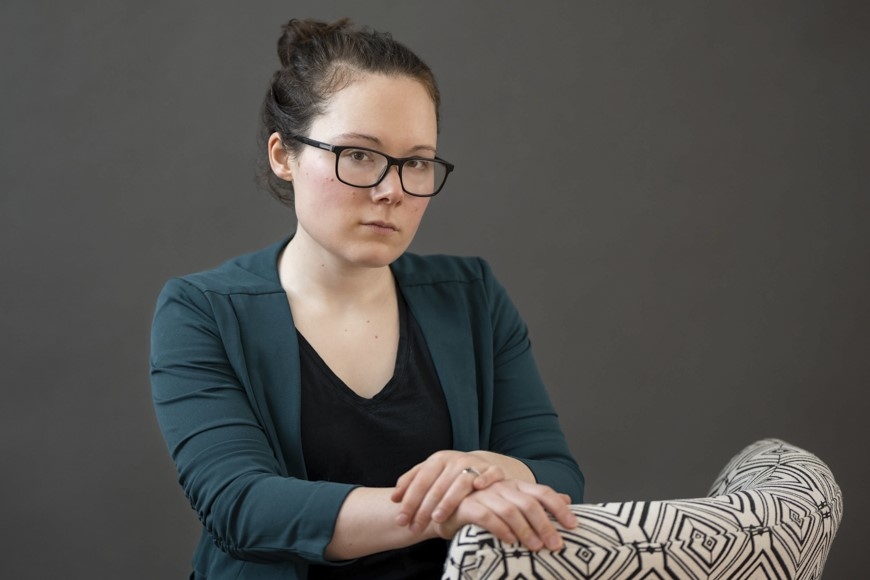Jane Sumner: Motley Teaching Award and New Book
“She is one of the most inspirational professors at the University, she focuses on the well-being of her students, she is a first-rate advisor, and she leads an active and engaging classroom.” Professor and Chair Paul Goren may be accused of being incentivized to heap adulation on Professor Jane Sumner, but he is not alone in his assessment.
Arthur “Red” Motley Exemplary Teaching Award
The College of Liberal Arts awarded Sumner the 2022 Arthur “Red” Motley Exemplary Teaching Award, which recognizes a select group of faculty who are outstanding teachers of graduate and undergraduate students. “Dr. Sumner is most deserving,” Professor Goren concludes.
Sumner’s research focuses on quantitative methodology and political economy, but she explains that “students are often surprised to find that I was not an exemplary undergraduate. I skipped classes and sometimes fell asleep in class, rarely went to office hours, and failed a statistics class.”
This experience, which Sumner recognizes as normal for many students, led to discouragement and caused her to struggle with her mental and physical health. “What really turned my undergraduate career around—and led me to graduate school and becoming a professor—was the care and attention of a small number of professors.”
The transformative gestures helped rebuild Sumner’s sense of self and became fundamental to her own teaching philosophy. Recognizing that being a college student is hard, for reasons related and unrelated to school, is imperative to being a good teacher. The second core tenant “is that small, intentional actions on the part of professors can have significant positive effects on students,” Sumner says.
Counter the Narrative
The subjects Sumner teaches, quantitative methodology and political economy, “are two areas in which lots of students become convinced at some point in their education that they are somehow deficient and incapable of succeeding,” Sumner laments. “The thing I’m most passionate about is trying to reverse this and counter this narrative because I think everyone can succeed in both of those fields if they want to, and my goal in teaching is to convince people they can and then give them the tools to succeed.”
Students in the Department of Political Science are civically-oriented and want to fix problems in the world. “I find it really exciting and motivating to teach them skills they can use to do that,” Sumner explains. “I love receiving emails from students later on who tell me about how they’re using what they learned in my classes in whatever role they’re in now.”
Carly Potz-Nielsen (MA '20, political science; PhD '22, political science) stated, “Professor Sumner has had a profound impact on my growth as a researcher, teacher, and professional.” PhD candidate Adam Lȇ shared that Professor Sumner’s “advising and mentoring has allowed me to excel as a graduate student from multiple marginalized identities.” Undergraduate student Jack Sewpersaud declared, “I can honestly say that no professor has provided me with better academic experiences both in and out of the classroom than Dr. Sumner.”
The Cost of Doing Politics
In addition to award-winning teaching, Sumner is engaged in path-breaking research on the political influence of corporations and misconceptions about consumer boycotts. This research is distilled in The Cost of Doing Politics: How Partisanship and Public Opinion Shape Corporate Influence (Cambridge University Press, 2022).
Most of how companies influence politics isn’t tracked and much of it people don’t recognize as an influence tactic. But, according to Sumner, “influence is about forming and maintaining relationships with people in power so that those people have reasons to listen to you and trust you when you need something.”
“Most of the corporate influence in politics is beneath the surface,” which inspired the book’s cover art, “and mostly functions to push more of it underwater to keep the company away from public anger.”
Boycotts aren’t necessarily about consumer behavior but about trying to make more of the iceberg of influence and actions visible. “The idea here,” Sumner explains, “is that you can boycott something you never bought or would never buy because a boycott isn’t really about what you buy or don’t buy, it’s about what you say about a company in public.”
Boycotts like this happen often. Sumner points to people boycotting Spotify because of Joe Rogan or people now boycotting companies that have investments in Russia after the invasion of Ukraine. “In both cases, if boycotts work, it’s not necessarily by hurting sales,” Sumner says. “It’s by harming the companies’ reputations.”
When Sumner is using quantitative and qualitative evidence to show how consumers influence companies and companies influence government in hidden ways or going above and beyond for her students inside and outside the classroom, she is living up to the description of “one of the most influential professors at the University.”


